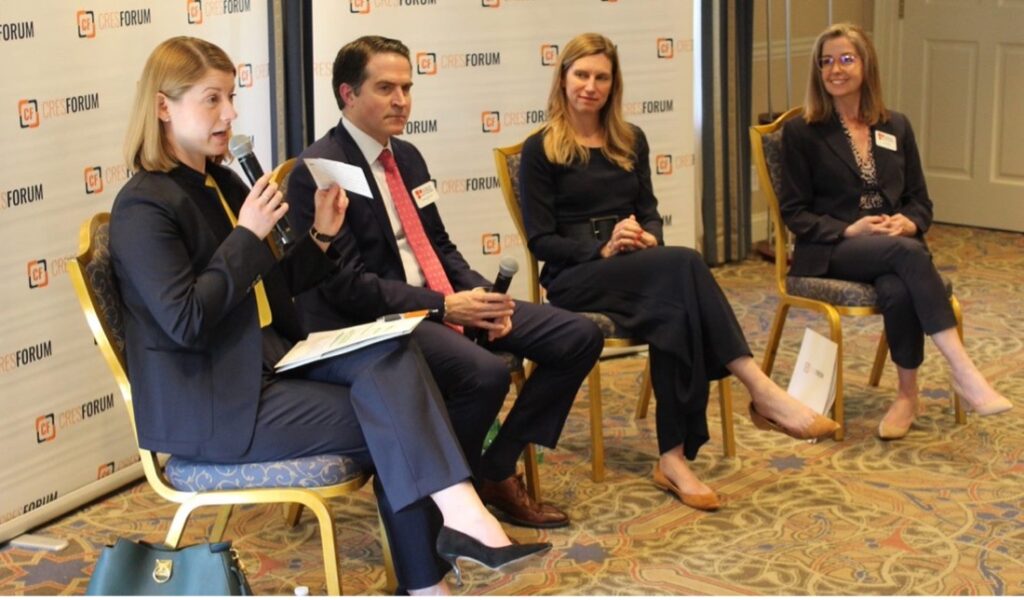Permitting reform has proven to be a hot topic throughout the 118th Congress. Provisions that address the duration of environmental review completed under the National Environmental Policy Act (NEPA) were included in the Limit, Save, Grow Act and, later, in the bipartisan budget deal passed earlier this year. While these changes are welcome, there are additional opportunities for improvement. On the eve of the passage of the bipartisan budget deal from the House, CRES Forum hosted a panel discussion on permitting reform that highlighted the need for permitting reform now more than ever before.
The panel featured Michael Catanzaro, President and Chief Policy Officer of CGCN, Anne Bradbury, CEO of the American Exploration and Production Council, and Carla Tully, Co-founder and CEO of Earthrise Energy. The panelists provided insight into the ongoing policymaking as well as the private sector’s experiences with permitting.

The discussion touched on the challenges that exist for developers and the opportunities for improvement throughout various statutes, like the Endangered Species Act and Clean Water Act, as well as at implementing agencies and the courts. The panelists addressed the appropriate role for the various levels of government – county, state, federal- that work independently and in coordination to permit. While some jurisdictions have embraced infrastructure development, others have used the permitting process to halt development. As a result, when it comes to building energy infrastructure, there is no silver bullet policy because each type of infrastructure is faced with unique challenges. With the breadth of issues to address, the panelists discussed the various existing regulatory frameworks beyond NEPA that are tailored to particular technologies and subject to new legal challenges seemingly filed on a daily basis across court systems.

While there has been a series of federal investments spurring the development of innovative technologies, the deployment of these technologies will still be subject to permitting regimes that are anything but innovative. Without reform, the regulatory barriers to deployment continue to be a hindrance to realizing the value of investment in clean energy technologies.
CRES Forum looks forward to continuing the permitting reform dialog to ensure thoughtful reform continues!